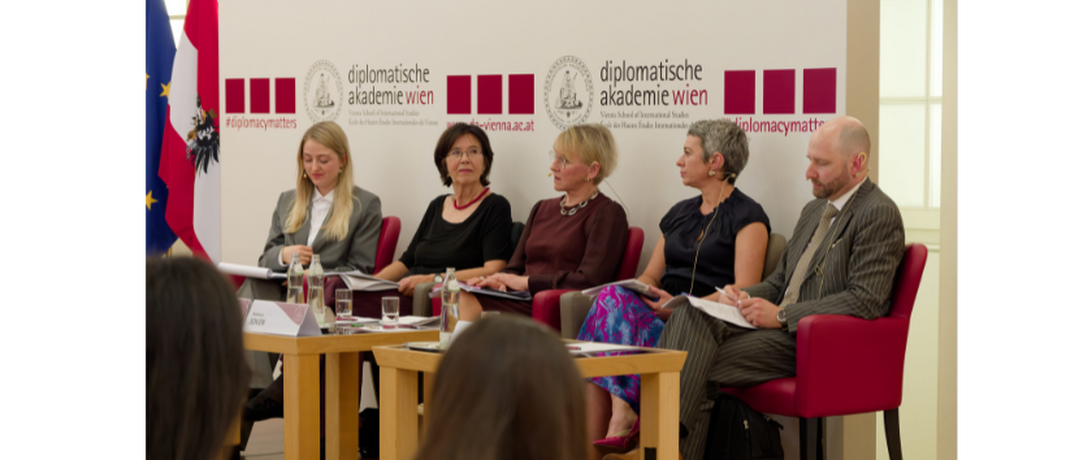Security rooted in fear, force and deterrence is not sufficient - that message echoed powerfully throughout our recent event: “Women’s Leadership in Rethinking Security: Beyond Fear, Force and Deterrence”. Organised by Open Nuclear Network, in partneship with the Austrian Institute for European and Security Policy (AIES) and the Vienna School of International Studies, this public panel convened diplomats, policymakers and international experts to challenge the status quo - and imagine new pathways for peace and security. Opening the event, ONN’s Engagement & Network Coordinator Kseniia Pirnavskaia posed urgent questions: "What kind of security does the world need at these daunting times - and who should be shaping it?"
Key takeaways from the discussion included:
- Traditional frameworks are not sufficient.
In many cases, they are part of the dynamics that actually sustain insecurity. Speakers underscored the need to move beyond military-centric thinking - toward approaches grounded in human security, international law and lived experience.
- Women’s leadership is essential - but still marginalised.
“25 years after UN Resolution 1325, women remain largely absent from negotiation tables,” noted keynote speaker Margot Wallström, former Foreign Minister of Sweden. She called for a fundamental shift in global security thinking, one that includes human-centred solutions, cultural context and long-term vision, underscoring that we have to use the potential of half of the planet’s population. It's strategic.
- Inclusion must be deliberate.
Rebecca Jovin of the United Nations Office for Disarmament Affairs (UNODA) at Vienna highlighted that we need inclusive leadership because it is key to achieving more sustainable alternative security outcomes. She also shared the UN’s own lessons in integrating gender-responsive approaches into expert groups and policymaking forums.
- Parliaments have a role to play.
Former OSCE Parliamentary Assembly President and ONN Advisory Council Member Christine Muttonen highlighted how parliaments can build durable disarmament commitments - by raising awareness among constituencies, engaging civil society and ensuring women’s participation at all levels.
- Austria’s experience shows what’s possible.
George-Wilhelm Gallhofer of the Austrian MFA spoke about the Treaty on the Prohibition of Nuclear Weapons (TPNW) as a model for inclusive security, that centres victims, integrates civil society and embeds a gender lens in its very architecture.
From the pushback against gender narratives to the normalisation of the narratives of power, the panel did not shy away from uncomfortable truths. But it also highlighted pathways forward through education, deliberate inclusion, advocacy, legal frameworks and multilateralism grounded in values.
